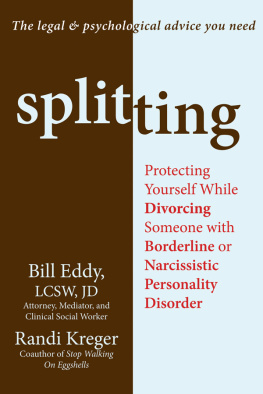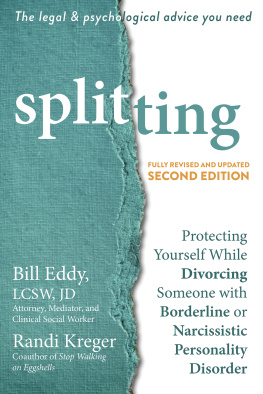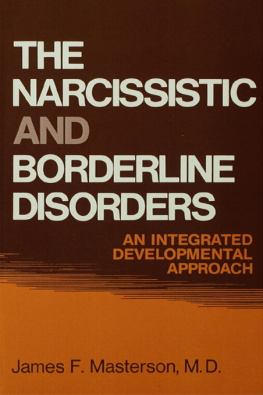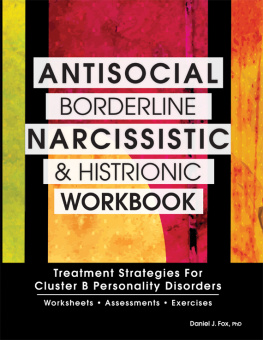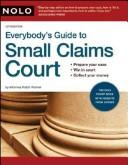Chapter 1
Preparing Yourself
Sarah was scared. She didnt know what to expect. For three years, Sam had verbally abused her, constantly blamed her, and sometimes even hit her. She was considering separating from him, but she still loved him and hoped it could work out somehow for them to be happy together, as they used to be. Then again, she wondered, If I actually separate from him, would he come after me and really hurt me? Or would he respect me and try to treat me better?
Thomass wife, Tammy, had extreme mood swings, from extremely demanding to overwhelmingly lovingall in the same hour!and was very inconsistent with their daughter. Thomas worked hard at his job, but Tammy sometimes showed up at his workplace and claimed he was hiding money. Thomas didnt know what his wife would do if he pursued a divorce. Tammy had hinted that she would say he abused their daughter if he ever abandoned her. He wondered, Would the court believe meor her? Should I get a lawyer or try to represent myself?
Personalities in Difficult Divorces
These days, handling difficult divorces is less about legal issues and more about difficult personalities. Sarah and Thomas have partners who may have borderline personality disorder (BPD) or narcissistic personality disorder (NPD). If you can relate to the types of issues they are facing, or other issues in a difficult divorce, this book is for youwhether or not your partner has one of these disorders and regardless of where you are in the divorce process (before, during, or after).
We have learned that these personalities, in particular, can affect every step of the legal process. Most books on divorce dont explain this. We will show you how to protect yourself with this knowledge so that you dont overreact or just give up. We will brief you on what to expect and offer many strategies for what you can do, following Sarahs and Thomass examples along the way.
Predictable Patterns
Sarah and Thomas each face a double dose of fear:
- Fear of separating from a partner whose extreme behaviors reflect those of someone with BPD or NPD
- Fear of a family court system that seems totally confusing and unpredictable
If you have these fears, youre not alone. Though they are very common and familiar to millions of people around the world, people rarely discuss them openly. We want you to know that the behavior patterns of people with BP and NP traits in separation and divorce are highly predictableand are not your fault; weve seen them hundreds of times. In this book we will predict many of the problems you may face. You might be shocked at how typical your partners behaviors are and wonder, Do these authors know my husband? Have they met my wife? (We hear this all the time.)
Its not that we have any special abilities. Its that people with these types of personalities have a narrow range of behaviors, especially under stress. Most people dont see these patterns, but once you know what to look for, you will be surprised at how well you can predict the ups and downs and the problems your spouse will display in the months ahead. The better you can predict future behavior, the better prepared you will be. Of course, this doesnt make it easy. So we have filled this book with tips for coping with a potentially borderline or narcissistic partner while going through the process of your separation or divorce.
For Married or Unmarried Couples
It doesnt matter whether you are married or no longer married, or have never married; the personality dynamics, legal issues, and responses we describe are very similar whatever your marital status. Therefore, we use the term divorce broadly to apply to married and unmarried couples and to address issues at the time of separation, in family court, and out of court. We refer to your partner broadly to mean the person with whom you are or were married, share or shared a residence, share a child, or any combination of these situations.
Family Court
Over the past several years, the family court system has received more and more public attention as the number of high-conflict divorces has increased. There are certainly enough horror stories and criticisms to make anyone going through a divorce very nervous. However, family court and legal professionals can also be highly predictable, especially in high-conflict cases with BP or NP partners involved. There are predictable strategies to deal with them as well.
Of course, we make no guarantees. You must use your own judgment and get lots of advice from your local attorney, therapist, and other advisers. We are offering general principles that we have seen work in family courts around the United States, Canada, and other countries. Surprisingly, we get feedback from people around the world describing the same patterns of personality-based behavior and the same patterns of problems in their family courts.
Splitting
The biggest pattern to prepare for is splitting. This books title, Splitting, has a double meaning. The first is obvious: splitting up. The second meaning refers to a defense mechanism universally seen in people with BPD and NPD. It means unconsciously seeing people as either all good or all bad, an extreme way of coping with confusion, anxiety, and mixed feelings. Splitting is especially prevalent under stress, particularly the stress of breaking up with someone the partner with BPD or NPD views as critical to his or her emotional survival. People who split in this manner put their partners on pedestals and then knock them down.
Perhaps you are familiar with this pattern. In the beginning of your relationship, your partner may have idolized you, and vice versa. Now that youre involved in a separation and divorce, your partner sees you as all bad to the extreme and may act abusively or make numerous false statements. This is an unconscious effort to cope with the emotions of loss of attachment to you (typical of people with BP traits), loss of an inflated self-image (typical of people with NP traits), and loss of control (typical of both). This is true whether it is you or your partner initiating the separation.
Because of this unconscious splitting, people with BP and NP traits may truly believe that you are the most dangerous, evil, immoral, crazy, or stupid person in the world. Therefore, they may feel justified in treating you in one or more of these extreme ways:
- Hitting you (domestic violence) or destroying your property
- Trying to keep you from leaving a room or the house
- Harassing you by phone or taking away your phone
- Hiding money
- Refusing to work
- Hurting the children
- Alienating the children
- Kidnapping the children
- Spreading rumors to your family and friends
- Using the court system to humiliate and control you
- Making false allegations of child abuse against you
- Making false allegations of domestic violence against you
- Making false allegations that you are alienating the children
- Making false allegations that you are hiding money
- Telling the court you can earn a lot of money but are unwilling
Therefore, to prepare for a separation and divorce, your immediate priority must be your physical safety and that of any children involved. You will also need to write down the details of behavior problems and confrontations right away so that you can respond to false statements your soon-to-be ex might make. This doesnt have to be overwhelming. It just takes organizing yourself in specific ways to deal with these fairly predictable problems. The more prepared you are for this pattern of extreme behavior and statements that comes from unconscious splitting, the better able you may be to keep your case from spinning out of control.
Next page
